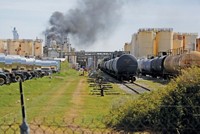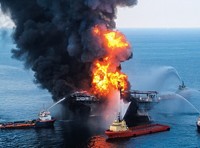Advertisement
Grab your lab coat. Let's get started
Welcome!
Welcome!
Create an account below to get 6 C&EN articles per month, receive newsletters and more - all free.
It seems this is your first time logging in online. Please enter the following information to continue.
As an ACS member you automatically get access to this site. All we need is few more details to create your reading experience.
Not you? Sign in with a different account.
Not you? Sign in with a different account.
ERROR 1
ERROR 1
ERROR 2
ERROR 2
ERROR 2
ERROR 2
ERROR 2
Password and Confirm password must match.
If you have an ACS member number, please enter it here so we can link this account to your membership. (optional)
ERROR 2
ACS values your privacy. By submitting your information, you are gaining access to C&EN and subscribing to our weekly newsletter. We use the information you provide to make your reading experience better, and we will never sell your data to third party members.
Safety
Reforms haven’t made offshore drilling safer, report finds
by Jeff Johnson, special to C&EN
April 18, 2016
| A version of this story appeared in
Volume 94, Issue 16

Regulatory changes enacted after the 2010 Gulf of Mexico oil rig disaster are inadequate to protect workers, reduce risk, and prevent similar future offshore accidents, says a new report by the Chemical Safety Board. A “culture of minimal regulatory compliance continues to exist in the Gulf and risk reduction continues to prove elusive,” the report says. The Deepwater Horizon accident killed 11 workers and caused the biggest oil spill in the history of offshore drilling. CSB investigators found that the responsible companies had corporate risk management policies more rigorous than what is required by regulation, but they did not implement them. New regulatory changes still fail to place the onus on industry to proactively reduce risk or empower regulators to prevent another disaster, the report says. A “cultural shift” in oversight and new tools to evaluate and monitor safety performance, including “meaningful worker participation,” are needed, the report says. The report still needs to be approved by the full CSB, which will vote on it later this month. It marks the third and final CSB report on the accident.




Join the conversation
Contact the reporter
Submit a Letter to the Editor for publication
Engage with us on Twitter